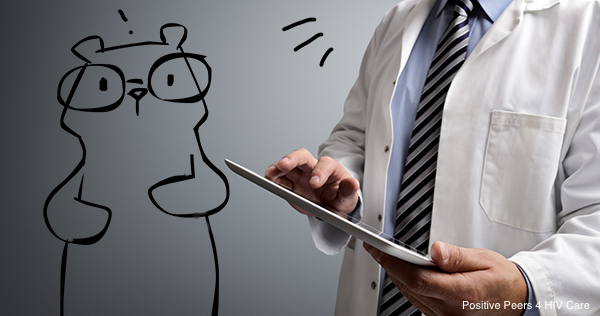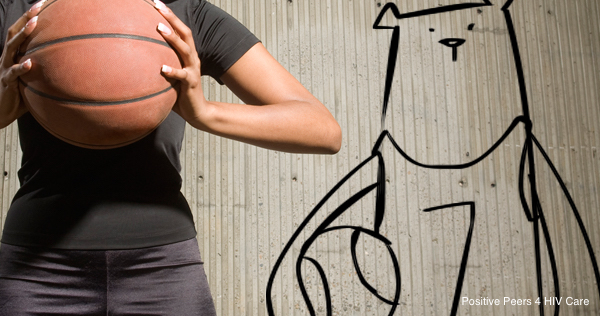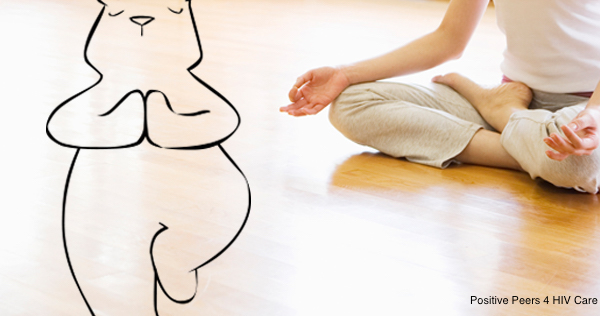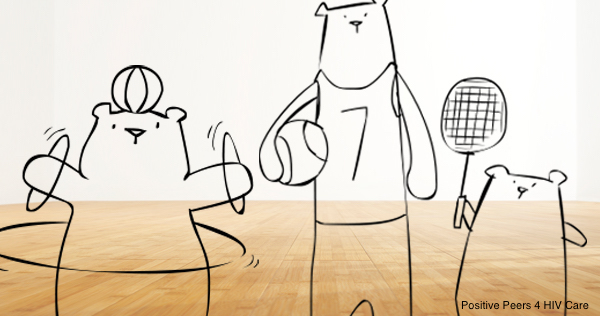Exercise gives you options.
All people living with HIV ever hear is what they MUST do to stay healthy. Take your meds, practice safer sex, get to your doctor’s appointments on time.
They’re not exactly handing out a lot of choices, are they?
And that’s the great thing about exercise. You can do just about anything you feel like, as long as it involves getting your heart rate up and working up a sweat.

By: Ann K. Avery, MD, Infectious Disease Physician at MetroHealth Medical Center
OK, so let’s talk about a few good reasons to exercise if you’re HIV-positive:
- It’s good for your brain: Exercise keeps all your nerves firing, especially the ones in your brain. When you’re living with HIV, you have to learn a lot and think a lot, so it helps to keep your mind sharp.
- It’s good for your mood: Exercise puts chemicals in your blood that make you feel better. And it makes you feel stronger, more confident, more like you’re in charge of your life.
- It’s good for your body. Exercise makes your muscles, bones and organs stronger and healthier. All that makes it much easier for your meds to do their job.
- It’s good for your looks. When you’re feeling strong and healthy, you just feel more confident. Other people notice — and they like it. It’s not about having a body that makes people crash into telephone poles when they see you on the sidewalk. It’s about having a look that says “I got this.”
Three Ways to Exercise for HIV
1. Aerobic: Exercises like jogging, bike riding, hiking and swimming get your heart pumping a lot faster than usual. You can also get aerobic exercise from martial arts, boxing, basketball, tennis, dancing, jumping rope or some exercise you invent on your own. Or you can just keep it simple and go for walks.

2. Resistance: Anything that adds weight to your exercise is called resistance training. You don’t have to lift weights in a gym. You can fill milk jugs with water and walk up and down stairs with them to get resistance training. You can also do crunches, pushups, and squats — using your own body for weights.
Come join our private, stigma-free, supportive community.
Health management tools with medication & appointment reminders.
Social networking in a community conversation & private chats.
3. Flexibility: Stretching makes all your muscles and bones more flexible, which keeps them more healthy. Some people practice yoga because it makes them stronger and more flexible while calming their minds.

How Much Exercise You Need
Your doctor will have the best idea (sorry, but yeah, you should talk to your doc before getting started with exercise). You should aim to exercise 30 minutes a day, 5 days a week.
The main thing is, don’t overdo it. Start slow and add a little bit more effort every week or so. Too much exercise will make you sore for a few days and throw you off your rhythm.
Exercise doesn’t have to mean going to gyms and having enough muscles for a magazine cover.
It’s just you and your moves. And everything’s better than zero.

Positive Peers is made possible through a U.S. Department of Health and Human Services Health Resources and Services Administration, HIV/AIDS Bureau Special Projects of National Significance (SPNS) Grant to The MetroHealth System. Click here for more information about the SPNS grant initiative.
Positive Peers is a private app for young people living with HIV. Learn how you can earn rewards for your participation.
